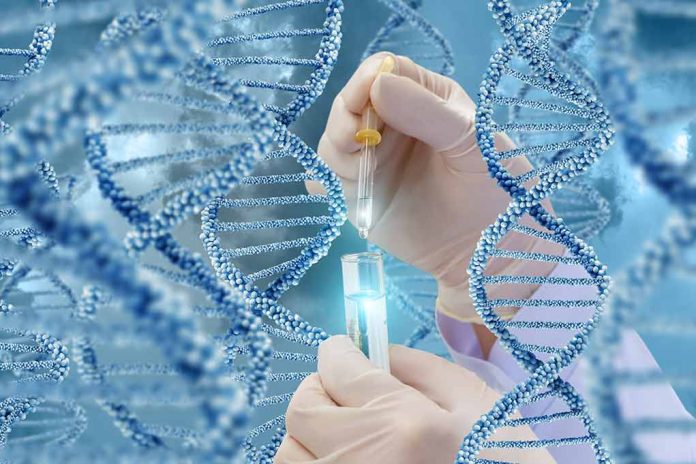
New research uncovers how genetics and sugar cravings intertwine, impacting health and disease risk.
At a Glance
- Humans consume more sugar than recommended, risking health.
- Sugar is linked to liver disease and metabolic disorders.
- Genetic variations influence sugar cravings and consumption.
- Reducing sugar intake can mitigate genetic health risks.
The Genetic Link to Sugar Consumption
Understanding the genetic basis for sugar cravings unveils a complex relationship between our DNA and dietary habits. Research reveals that specific genes influence how much sugar we consume and how much we enjoy it. Individuals with genetic variations affecting sucrose digestion tend to have lower sugar cravings and consumption, presenting a potential strategy for tackling obesity and type 2 diabetes.
The average American significantly exceeds recommended sugar intake, consuming about 22 teaspoons daily. This overconsumption leads to numerous health issues, including obesity and insulin resistance, both precursors to more severe conditions like heart disease and liver disorders. Excessive fructose consumption, a common sugar component, is closely associated with non-alcoholic fatty liver disease, highlighting the vital role of mindful eating.
The Role of Historical Studies and Sugar Industry
The influence of the sugar industry on scientific research dates back decades. Historical studies funded by sugar stakeholders often diverted attention from sugar’s impact to focus on fats in discussions about cardiovascular diseases. This downplayed the knowledge of sugar’s detrimental effects on health, delaying a broader understanding of its role in chronic inflammation and other metabolic disorders.
“These findings suggest that genetic variation in our ability to digest dietary sucrose can influence our intake, and preference, for sucrose-rich foods while opening up the possibility of targeting SI to selectively reduce sucrose intake at the population level.” – Dr. Peter Aldiss of the University of Nottingham in the UK.
The liver and pancreas are pivotal in sugar metabolism, with the pancreas regulating blood glucose through insulin. Overconsumption overloads these organs, leading to metabolic dysfunction and increased uric acid levels due to a genetic mutation inhibiting uricase production. This mutation, once beneficial for survival, now predisposes individuals to obesity and diabetes in our sugar-abundant environment.
Future Directions and Potential Treatments
The research conducted by Dr. Peter Aldiss and his team suggests a new frontier in nutritional genetics. By understanding how genes influence sugar consumption and preferences, future treatments could target specific genetic variations to reduce sugar cravings, offering a powerful tool to counteract rising obesity and diabetes rates. This approach promises to transform dietary habits on a population scale, potentially reducing the incidence of numerous sugar-related diseases.
“Understanding mechanisms to potentially reduce desire for and intake of sugar is an exciting area of innovation and could have beneficial consequences in the future to reduce the burden of disease,” – Dr. Rifka C. Schulman-Rosenbaum, from The Washington Post.
Reducing sugar intake, inspired by genetic insights, aligns with long-term health goals, mitigating risks associated with genetic predispositions. As studies progress, these findings may herald a new era where genetic understanding empowers individuals to make informed dietary choices, ultimately enhancing public health outcomes.







